How a partnership between the sheriff's office, Metro Tech will benefit students, residents
An Oklahoma County 911 dispatch center will move later this year from its current home — a building on a parking lot in Midwest City where a car dealership once operated — to a newly built, storm-resistant building at Metro Technology Centers' South Bryant Avenue campus.
A $1 annual lease agreement between the sheriff's office and school system to lock in the move was approved by Oklahoma County Commissioners earlier this month.
But the deal isn't just about better facilities at an affordable price. It also aims to spark interest among Metro Tech's Public Safety Academy students in 911 dispatching positions at Oklahoma County, which can sometimes be difficult to fill.
Inside the center, academy students will work with dispatch professionals as they are exposed to real-life situations and scenarios, providing them with valuable experience they can take with them into the job market.
The training opportunity will give people interested in the career some early experience, rather than relying on on-the-job training.
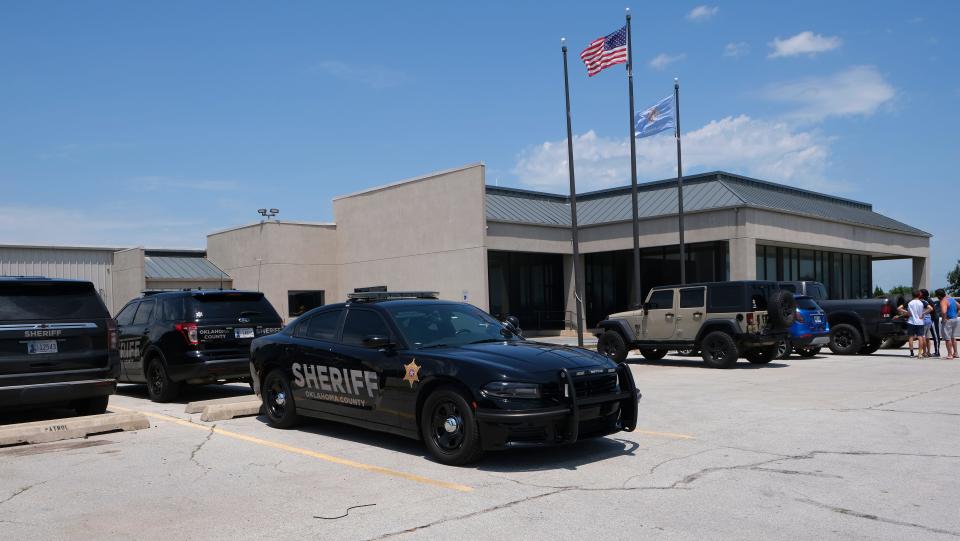
"I think, sometimes people underestimate the level of stress that can come with that job, and it sometimes can be a difficult position for us to fill," said Aaron Brilbeck, spokesman for the sheriff's department. "Offering experience to academy participants will help us dramatically, because it no longer will be baptism by fire."
"When you are trained and understand the industry, you are plug and play, almost. The learning curve isn't as big. The training process is a benefit for everybody," agreed Oklahoma County Sheriff Tommie Johnson III.
How the new 911 center will improve aid it provides to Oklahoma County residents
The dispatch center handles emergency and non-emergency calls for fire and police services for Oklahoma County communities east of Interstate 35, except for Edmond, Midwest City and Del City. Those communities have their own dispatch centers.
The center's existing home of more than 20 years is vulnerable to severe weather that potentially could knock it offline, Undersheriff James Anderson told commissioners.
"It will be the first time in the recent history I am aware of that the sheriff's office will have a purpose-built, hardened, secure, state-of-the-art communications center with redundant power and internet services," said Anderson. "Our interruptions for whatever reason, short of something really catastrophic happening, should be almost nothing."
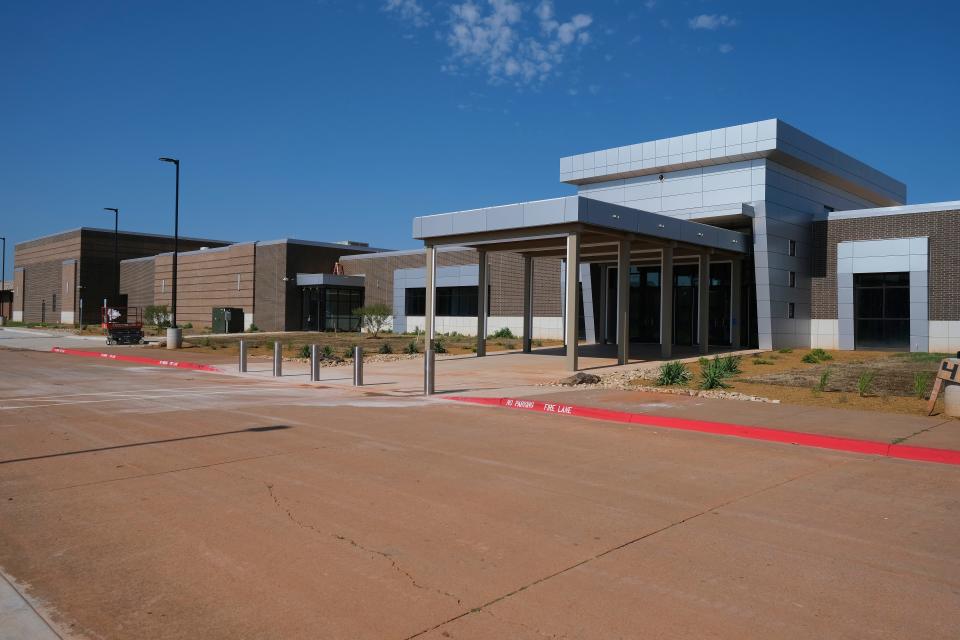
More: Calling 911? The person answering may increasingly be overworked or poorly trained
Anderson said space for the new center is large enough to accommodate additional communications consoles for other agencies that might want to locate their dispatch operations there.
He said it will improve services to county residents at little to no cost — even the center's utilities will be paid for by Metro Technology Centers, he told commissioners before they unanimously approved the agreement.
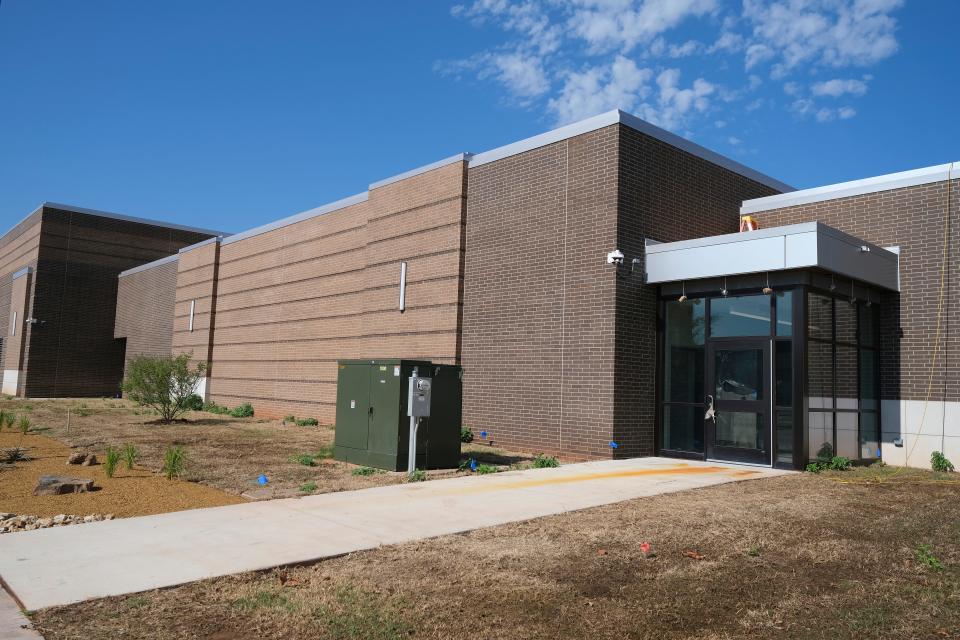
The bonus for the school, he told them, is that the county will offer communications-related training and certifications to enrollees within its academy.
"I am excited about this partnership," Commissioner Carrie Blumert said.
How the new 911 center helps Metro Technology Centers students
Aaron Collins, the superintendent/CEO of Metro Technology Centers, said hosting the county sheriff's 911 center excites him because of the real-world training opportunities it brings.
Metro Tech began putting the Public Safety Academy together about four years ago. It offers Council on Law Enforcement Education and Training (CLEET) certifications for law officers and also offers emergency medical services and firefighting training.
More: Oklahoma County agrees to pay HOK $23 million to design new jail, mental health facility

The academy also is geared toward preparing high school students and young adults for Oklahoma City Police Department academies.
Metro Tech began planning a new building for the academy's use on its South Bryant Avenue campus after county voters supported an $80 million bond issue in 2019.
The system also used the bond issue's proceeds to build a new building for cosmetology students, renovate its business conference center and make other improvements to its Springlake campus.
The system will consolidate all of its Public Safety Academy programs into the new building before the end of this year, Collins said.
Collins credited Sheriff Johnson for suggesting a partnership between the vocational-technical school and his agency to find room for the county-operated 911 communications center because of the benefits it creates.
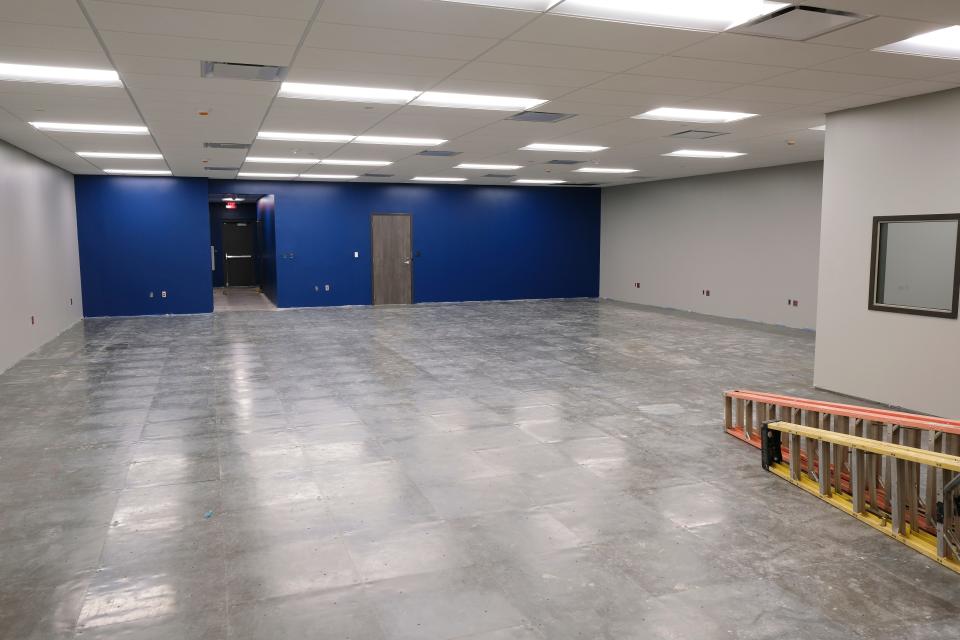
Talks between the two entities to create a beneficial agreement started "before a shovel even touched the ground," Collins said.
"Employers are seeking safe communities with strong educational systems where they can locate and grow and their employees can establish and grow their families," Collins said. "When we have a strong county and city and education partnership, what you get then is a wonderful place in which to live."
Sheriff: Dispatcher job probably toughest in law enforcement
A recent survey of emergency dispatchers conducted by the National Emergency Number Association and Carbyne, a cloud technology company focused on emergency services, highlights challenges they face.
A poll of about 850 workers from 911 call centers across the country found many were experiencing burnout, handling more frequent call surges and felt undertrained, demonstrating widespread staffing problems.
In some places, people needing help have faced longer times in reaching dispatchers or, in some cases, couldn't reach them at all.
"The numbers we're seeing right now are really alarming. It was a major impetus of why we did this study. I knew it was going to be high, but 82% of respondents said their centers were understaffed," said Karima Holmes, vice president and head of public safety at Carbyne and former director of the Office of Unified Communications in Washington, D.C.
The survey showed:
About 38% said they were not well prepared to handle active shooter calls.
About 25% said they needed more training around mental health calls.
About 75% of respondents said the high-stress nature of the job was the major factor in staffing shortages.
About 65% said low pay was a significant deterrent.
About 53% of workers said they experience high volumes of misdials at their center, especially after Android phones added a feature to its equipment that connects users to emergency services if a button on the side of phones is pushed five times in rapid succession.
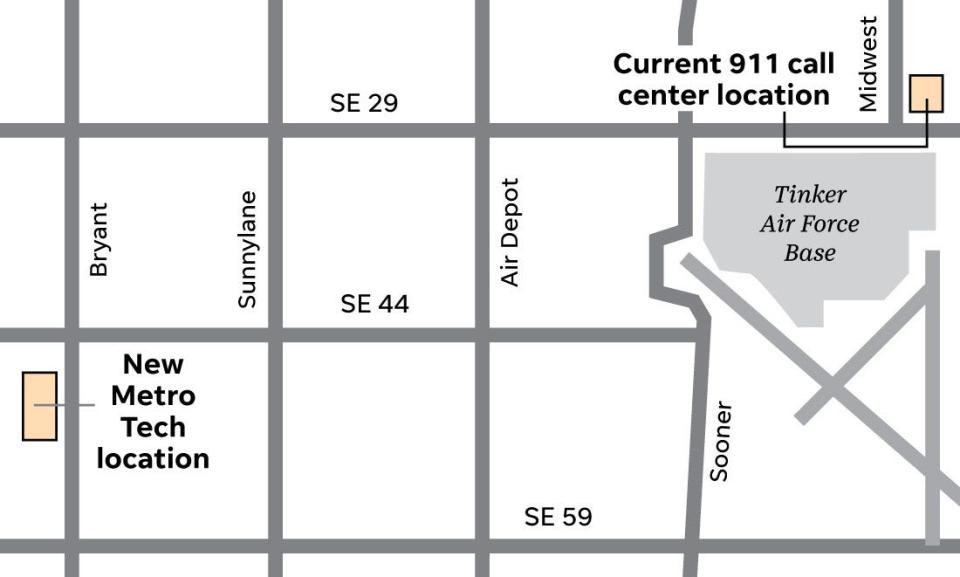
Phones and devices rattling around in bags or dropped to the ground have been calling 911 many times without users even knowing, which clogs incoming lines and wastes valuable time, survey organizers said.
The survey's results were released at an online national conference of 911 leaders to discuss possible solutions to staffing and other issues faced by emergency response centers.
Brian Fontes, CEO of NENA, said the group has been advocating for national legislation to change the U.S. Bureau of Labor Statistics' classification of 911 workers from office or clerical workers to protected service workers like other emergency responders.
The change would boost morale by more accurately describing the role of 911 workers and open doors locally to include those workers in benefits programs offered to police and others, he said.
The group also has been pushing a bill that would spend $15 billion equipping centers across the country with newer technology that Fontes and others said would address some of the other issues 911 workers noted in the survey.
As for here in Oklahoma, Sheriff Johnson said emergency operators also are stressed because they are required to take and filter information provided by often distraught callers and then accurately relay what responding deputies, police officers or firefighters need to know to safely serve.
Often, the operators never learn how situations they coordinated responses to are resolved, Johnson also said.
"We can train, we can provide workforce, we can provide highly skilled people to get into this industry and we can provide them the skills they need to be successful," Johnson said.
Contributing: The Associated Press
This article originally appeared on Oklahoman: Oklahoma County, Metro Technology Centers combining training, 911 dispatch

